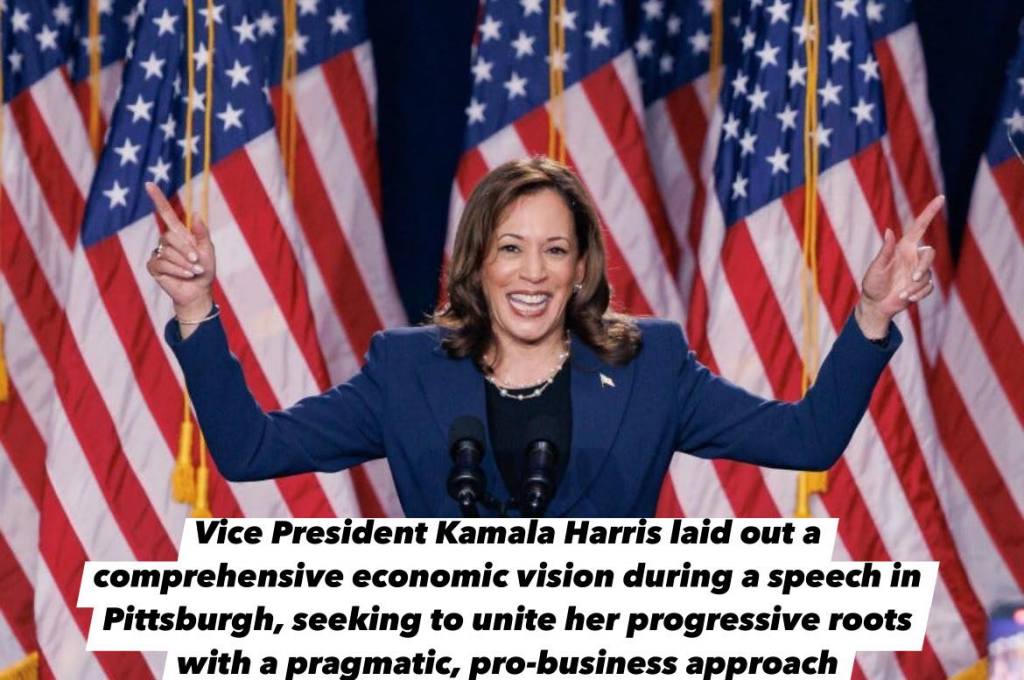In a critical moment, Harris declared, “I am a capitalist,” underscoring her commitment to protecting and expanding U.S. manufacturing. Speaking in the battleground state of Pennsylvania, she highlighted how America’s industrial strength has historically powered its economic leadership. She vowed to rejuvenate that legacy by investing in sectors that will shape the future.
Harris pledged to boost American manufacturing by supporting emerging industries such as bio-manufacturing, aerospace, artificial intelligence, blockchain technology, and clean energy. She emphasized the importance of ensuring that the next generation of technological breakthroughs—advanced batteries, geothermal energy, or advanced nuclear power—are invented and produced domestically, creating jobs for American workers.
Positioning herself as a defender of the middle class, Harris outlined plans for tax increases on large corporations while providing tax relief for small businesses and homebuilders. She reiterated her long-standing commitment to supporting small businesses, lowering costs, and promoting growth in crucial industrial regions like the Monongahela Valley, a once-thriving steel hub near Pittsburgh.
In a nod to history, Harris framed her economic vision alongside the legacies of past presidents known for significant infrastructure advancements, invoking Abraham Lincoln, Franklin D. Roosevelt, Dwight D. Eisenhower, and John F. Kennedy. Her speech painted a picture of transformative leadership focused on rebuilding America’s economic backbone through forward-thinking policies and investments.
Her message was not solely focused on policy proposals. Harris also strongly criticized former President Donald Trump’s economic record, accusing him of failing American workers, particularly in manufacturing. She highlighted that Trump’s trade policies, specifically his tariffs, have cost American families thousands of dollars and led to outsourcing manufacturing jobs. In a jab at Trump’s pro-business reputation, Harris claimed his economic policies favored the wealthy and large corporations over the working class, stating, “For Donald Trump, our economy works best if it works for those who own the big skyscrapers, not those who build them.”
Harris’s speech was aimed at voters who may have previously supported Republican candidates but are now reconsidering their choices. She sought to present herself as the candidate who understands both the needs of the middle class and the importance of American global competitiveness. Her campaign seems hopeful that her pro-business rhetoric and support for workers and unions will attract voters in crucial swing states.
The Pittsburgh event marked her third major speech on the economy since becoming the Democratic nominee, following previous addresses focused on lowering costs and aiding small businesses. Her emphasis on manufacturing and infrastructure reflects a return to core Democratic themes but with a modern twist, aligning her message with cutting-edge industries and a future-oriented economic vision.
With prominent supporters like billionaire Mark Cuban backing her economic approach, Harris is crafting a narrative that positions her as the best candidate to lead America into the next phase of industrial innovation while defending the working class. In her closing remarks, she again sharply contrasted Trump’s vision, declaring, “The best way to predict the future is to invent it.”
- Follow or share

